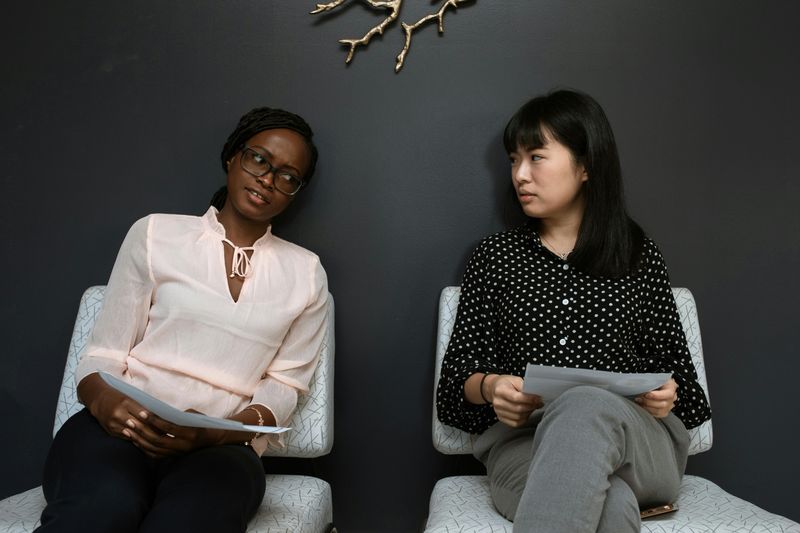How to Understand People Better (Without Judging Them)

We all want better relationships, but sometimes we’re too quick to judge others. Understanding people takes effort and an open heart. Learning to see beyond our first impressions helps us build stronger connections and makes our own lives richer too.
1. Listen with your whole self

Most people listen just enough to form a reply, not to truly understand. Real listening means putting away your phone, making eye contact, and focusing completely on the other person’s words.
Watch for body language too – crossed arms, fidgeting, or a tight smile might tell you more than words. Sometimes what people don’t say matters as much as what they do.
Practice this by asking follow-up questions that show you’re paying attention. “That sounds challenging, how did that make you feel?” opens doors to deeper conversations and shows you care enough to truly hear them.
2. Walk in their shoes first

Imagine being the other person before forming opinions. Their behavior might seem weird until you consider their background, struggles, or the morning they’ve had.
A grumpy cashier might be working three jobs to pay medical bills. The slow driver ahead might be a nervous teen just learning. The colleague who missed a deadline might be caring for a sick child.
Try this mental exercise: When someone frustrates you, pause and think, “What might be happening in their life that I can’t see?” This simple question transforms judgment into curiosity and opens the door to genuine understanding.
3. Ask questions instead of making statements

“Why would you do that?” sounds accusatory. “What led you to that decision?” invites sharing. The difference might seem small, but it’s huge in building trust.
Open-ended questions show you’re curious rather than judgmental. They create space for people to explain themselves fully instead of just defending their actions.
Next time you’re confused by someone’s behavior, try saying, “Help me understand your thinking here” rather than “That doesn’t make sense.” You’ll be amazed how people open up when they feel you genuinely want to understand rather than criticize them.
4. Recognize your own filters and biases

We all see the world through lenses shaped by our experiences. Your upbringing, culture, and past hurts create invisible filters that color how you interpret others’ actions.
Maybe you’re quick to assume people are being rude because you were bullied as a child. Or perhaps you distrust authority figures because of negative experiences with teachers.
Start noticing your automatic reactions. When you feel strongly about someone’s behavior, ask yourself: “Is this about them, or about my past?” This self-awareness creates space between your immediate judgment and your response, allowing for more accurate understanding.
5. Look for the story behind the behavior

People’s actions make perfect sense when you know their full story. The friend who cancels plans might be battling anxiety, not being flaky. The boastful coworker might be masking deep insecurity.
Humans are like icebergs – we only see the tip of their experience. Beneath visible behaviors lie fears, hopes, past traumas, and current struggles that explain seemingly irrational actions.
Remember this powerful truth: Most people aren’t acting against you; they’re acting from their own pain or needs. This perspective shift transforms annoyance into compassion and creates space for genuine connection rather than quick dismissal.
6. Embrace the power of “I don’t know yet”

We’re wired to seek clarity, which makes it tempting to put people into neat categories. But labeling someone as good or bad, smart or not, can cut off the chance to really know them.
The most insightful people cultivate comfort with uncertainty. They hold space for contradictions and remain curious about people who confuse them.
Practice saying, “I don’t have enough information to understand this person yet.” This humble admission keeps your mind open to new insights. The person who initially seemed rude might reveal themselves as shy. The seemingly perfect family might be struggling privately. Suspending judgment allows the full, complex truth to emerge.
7. Respond to needs, not just words

Sometimes people say “I’m fine” when they’re falling apart. They might snap at you when what they really need is support. Understanding people means hearing the request beneath the words.
A friend complaining about their job might actually be asking for validation. A partner picking fights might be craving connection. A child’s tantrum might signal they need help processing big emotions.
When someone’s behavior seems puzzling or frustrating, ask yourself: “What might this person need right now that they can’t express directly?” This compassionate question shifts your focus from judgment to understanding, allowing you to respond to the real need behind the words.

Comments
Loading…